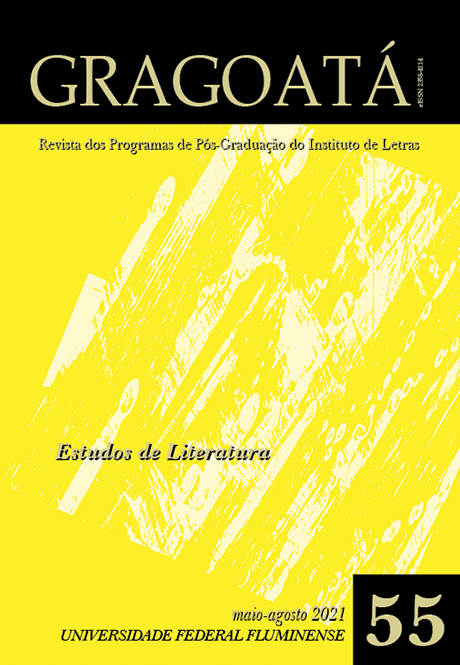Chronicle of an Announced Resistance: the Traces of Critical Dystopia in Bacurau, by Kléber Mendonça Filho and Juliano Dornelles
DOI:
https://doi.org/10.22409/gragoata.v26i55.47273Abstract
Dystopia is an unfolding of the literary utopia that gained strength especially in the early twentieth century, demonstrating a unique ability to discuss current socio-political issues through a “stained mirror of the future”. The dystopian text has a predisposition for the narrative that brings it closer to different artistic and discursive genres when telling the experience of one or more people in the near future or not, in which the proposed social order is considered worse than what exists in the reality. From the 1980s, critics and theorists who study the theme signaled a “dystopian turn”, in which narratives of this nature began to show glimpses of hope amid the characteristic chaos of the theme with the advent of the so-called critical dystopias. Taking the above considerations, the present work analyzes the recent feature film by Brazilian directors Kléber Mendonça Filho and Juliano Dornelles, Bacurau (2019) as a critical dystopia. The film, which places its narrative in the Pernambuco backwoods "in a few years", presents the union of a community against the constant tension of external forces that worked for its destruction, leaving them with only the sense of resistance already rooted in its history. Thus, we seek to discuss this specific type of dystopia and how it is present within the narrative of the film, transforming it into a material of acute social and political criticism. The present research is bibliographic and exploratory, based theoretically on names as Sargent (1994), Baccolini (2003), Cavalcanti (2011) and Moylan (2016).
Downloads
Downloads
Published
How to Cite
Issue
Section
License
Authors who publish in Gragoatá agree to the following terms:
The authors retain the rights and give the journal the right to the first publication, simultaneously subject to a Creative Commons license CC-BY-NC 4.0, which allows sharing by third parties with due mention to the author and the first publication by Gragoatá.
Authors may enter into additional and separate contractual arrangements for the non-exclusive distribution of the published version of the work (for example, posting it in an institutional repository or publishing it in a book), with recognition of its initial publication in Gragoatá.

Gragoatá is licensed under a Creative Commons - Attribution-NonCommercial 4.0 International.











